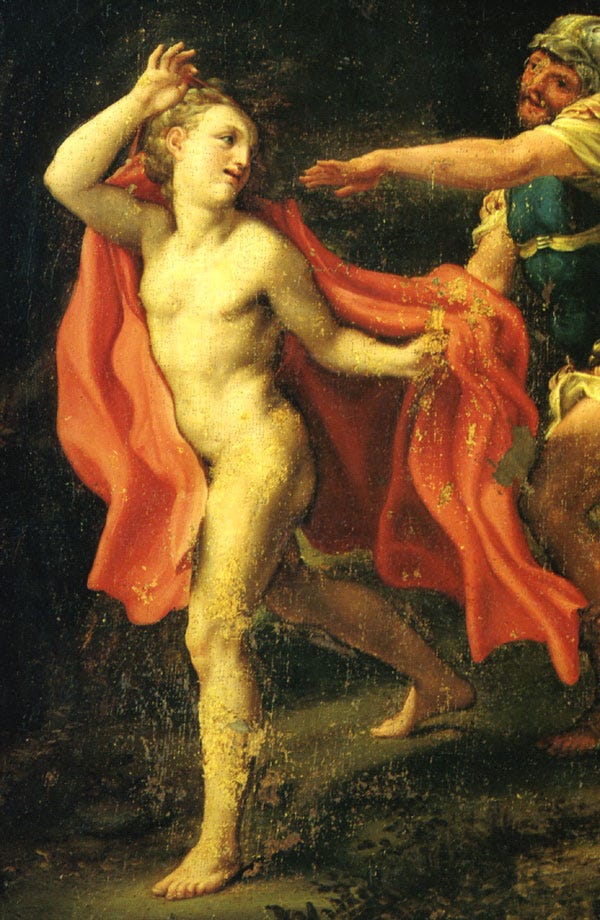
A poet and translator with a Ph.D in medieval English literature, Maryann Corbett spent thirty-five years working for the Office of the Revisor of Statutes of the Minnesota State Legislature before returning to a scholarly and literary vocation. She is the author of six full-length books of poems, including The O in the Air in 2023, and has translated works in Latin, Old English, French, and Old Occitan. The recipient of many accolades, including the Willis Barnstone Translation Prize and the Richard Wilbur Award, Corbett is a frequent book reviewer for such publications as the Hopkins Review, Literary Matters, and the Los Angeles Review of Books.
Today’s poem by Corbett homes in on a small, strange moment in the fourteenth chapter of the Gospel of St. Mark: that torchlit melee in the Garden of Gethsemane, in the small hours between the Last Supper and the cock-crow t…
Keep reading with a 7-day free trial
Subscribe to Poems Ancient and Modern to keep reading this post and get 7 days of free access to the full post archives.



